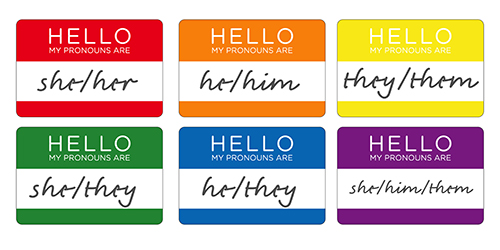 With gender identification becoming more fluid, there is an inherent conflict of how to identify a fluid gender employee while respecting religious beliefs. As a result, there are more court cases filed to protect one right with a defense of the other right leaving employers in the middle and on edge at times. This tension can cause disruptions to the culture and to productivity if not addressed properly, whatever that may mean.
With gender identification becoming more fluid, there is an inherent conflict of how to identify a fluid gender employee while respecting religious beliefs. As a result, there are more court cases filed to protect one right with a defense of the other right leaving employers in the middle and on edge at times. This tension can cause disruptions to the culture and to productivity if not addressed properly, whatever that may mean.
Currently, there are two cases that employers are watching. The first is from a Federal District Court in Indiana. An evangelical Christian teacher refused to use gender-affirming names and pronouns for his transgender students. In a second case, the 11th Circuit will be ruling on a case involving a hostile work environment brought by a transgender corrections officer who was misgendered on the job.
The U.S. Supreme Court's decision in Groff v. DeJoy last June made the legal bar higher for employers to show that religious accommodations cause an undue hardship to the business. What makes this more difficult is that the EEOC guidance on harassment that came out in September states that misgendering — the "intentional and repeated use of a name or pronoun" that doesn't match a person's gender identity — qualifies as sex-based harassment.
In the Indiana case, Kluge, the plaintiff, was allowed by the school to call the children by their last names. But the students complained, and Kluge was ordered to use their pronouns or quit. Kluge quit.
In the 11th Circuit Copeland case, the correction officer asked for an accommodation to be called by their title, Lieutenant Copeland. It worked until it didn’t, because the other employees refused to do so. The Kluge case references the accommodation by the Copeland case. Even the Department of Justice weighed in on Copeland saying their request was reasonable.
In consideration of the Groff case, Kluge filed a motion for summary judgment arguing that the school district unlawfully reneged on an accommodation that he said had been working — calling his students by their surnames — and created a new policy that "left no room for Title VII religious accommodations."
For employers today, the issue of employee rights between pronouns and legitimate religious objections is up in the air. It is likely for the courts to determine eventually what the boundary is and how to navigate it. What makes it very difficult today is how to determine a sincerely held religious belief, especially when an employee may be asserting something but really using it as a shield from inappropriate behavior. If employers and courts start questioning the sincerity of employees' religious beliefs, that's a "slippery slope," said Marjorie Mesidor, a partner at worker-side Wigdor LLP.
The takeaway for employers is that this situation is likely to arise in the near future as the workforce transitions away from the Boomer generation and values. Further, politically this issue of misgendering will be further in the news, although it will likely impact a very small proportion of the workforce, because of external pressures on the political parties. When this situation arises, HR needs to consult with legal counsel as to how to determine the policy and outcomes that will reduce the risk of a lawsuit.
Source: Law360 11/20/23, Fisher Phillips 5/8/23, CBS News 12/20/19